NALMS 2020 Election Candidates
 The 2020 election for officers and directors is underway. Voting in the annual election is an important way for NALMS members to provide input in the management of the Society. Our officers and directors are all volunteers who serve without pay.
The 2020 election for officers and directors is underway. Voting in the annual election is an important way for NALMS members to provide input in the management of the Society. Our officers and directors are all volunteers who serve without pay.
All members may vote for President-Elect and Secretary.
- The President-Elect serves for one year in that position after which he or she serves as President for one year and Past-President for one year.
- The Secretary serves for two years and may succeed themselves for one additional term.
Members may also vote for a director to represent their NALMS Region. Regional Directors are elected for a three-year term, but may not serve successive consecutive terms.
Student members may also vote for a Student Director. The Student director is elected for a one-year term and may serve up to three successive consecutive one-year terms.
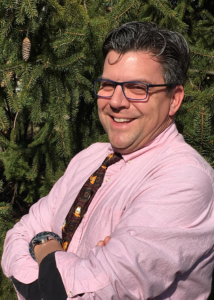 Christopher (Chris) Mikolajczyk, CLM, attended his first NALMS conference in Madison, Wisconsin in 2001. From there, Chris went on to serve as the Region 2 Director from 2012–2015 and both served and chaired the certification committee from 2015–2019. Chris is actively involved in the New Jersey Coalition of Lake Associations (NJCOLA), has presented at and sponsored several New York State Federation of Lake Association annual conferences for several years running now and has recently joined the Colorado Lake and Reservoir Management Association after his move to that state. Chris is a CLM and senior manager of aquatics for Princeton Hydro and conducts the management, oversight, and coordination of aquatic ecology and water resource projects in three main areas: aquatic resource restoration and management, aquatic ecosystem sampling and investigations, and stormwater quality modeling and management. Chris has been with Princeton Hydro since 1999 and has studied and managed well over 75 lakes in his career there. Chris possesses an associate degree in ecology and environmental technology from Paul Smiths College and both bachelor’s and master’s degrees in Geography (with an emphasis on water resources) from Rutgers University.
Christopher (Chris) Mikolajczyk, CLM, attended his first NALMS conference in Madison, Wisconsin in 2001. From there, Chris went on to serve as the Region 2 Director from 2012–2015 and both served and chaired the certification committee from 2015–2019. Chris is actively involved in the New Jersey Coalition of Lake Associations (NJCOLA), has presented at and sponsored several New York State Federation of Lake Association annual conferences for several years running now and has recently joined the Colorado Lake and Reservoir Management Association after his move to that state. Chris is a CLM and senior manager of aquatics for Princeton Hydro and conducts the management, oversight, and coordination of aquatic ecology and water resource projects in three main areas: aquatic resource restoration and management, aquatic ecosystem sampling and investigations, and stormwater quality modeling and management. Chris has been with Princeton Hydro since 1999 and has studied and managed well over 75 lakes in his career there. Chris possesses an associate degree in ecology and environmental technology from Paul Smiths College and both bachelor’s and master’s degrees in Geography (with an emphasis on water resources) from Rutgers University.
“Throughout my 20-year membership to NALMS, I’ve had the pleasure of serving on both the Board of Directors and as the chair to the certification committee. One of my proudest accomplishments during this time was the initiation of the provisional certification program, which allowed newly graduated students to enter the certification program while working to meet the professional experience requirements. Prior to the provisional program, these new graduates did not have the opportunity to benefit of the NALMS certification program. Much of my professional focus has been targeted towards bringing all the necessary, diverse stakeholders together in the name of water resource protection and lake management. These efforts allow for the implementation of sound science in an inclusive format as evidenced in the Summer 2020 issue of LakeLine, which focuses on a recent project of mine in New Jersey. I feel these management and coordination skills will serve NALMS well in my role as president-elect. These skills will be especially relevant as we move forward into a post-pandemic culture. Not only do we need to work to bring ALL the diverse voices to the table, particularly those who have not previously had a chance for introduction and advancement, we need to focus NALMS resources into engaging people where they are while providing opportunities for long-time NALMS members and conference goers to flourish and expand their work. These efforts will build a solid foundation so that lake lovers, users and scientists may display their talents so that NALMS can continue to grow and focus on its core mission, “To forge partnerships among citizens, scientists, and professionals to foster the management and protection of lakes and reservoirs for today and tomorrow” so that ALL may enjoy these aquatic treasures.”
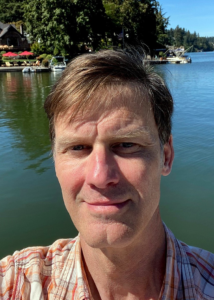 Mark Rosenkranz has been involved in lake management for over 20 years, first as a graduate student at Portland State University (PSU) where he received a master’s degree in Environmental Management, followed by 18 years as a limnologist with Lake Oswego Corporation (LOC). In 2017 he started Aquatic Insight LLC to share his knowledge with lake and pond owners in the broader Northwest Region. Mark has been an active member of Oregon Lakes Association (OLA) since his time at PSU, serving on the board of directors and as President in 2004 and 2005. He has been an active member of NALMS since 2002 and currently serves as Region 10 director.
Mark Rosenkranz has been involved in lake management for over 20 years, first as a graduate student at Portland State University (PSU) where he received a master’s degree in Environmental Management, followed by 18 years as a limnologist with Lake Oswego Corporation (LOC). In 2017 he started Aquatic Insight LLC to share his knowledge with lake and pond owners in the broader Northwest Region. Mark has been an active member of Oregon Lakes Association (OLA) since his time at PSU, serving on the board of directors and as President in 2004 and 2005. He has been an active member of NALMS since 2002 and currently serves as Region 10 director.
“It was through my involvement with OLA that led to an internship and eventual full-time employment at LOC. This was followed by joining NALMS and attending conferences, where I was able to take advantage of a network of professionals researching and applying the latest methods of water quality improvement. The support from individuals in the organization was extremely important as I was starting my career. In turn, I have enjoyed passing down my experience to the student interns I work with at LOC.”
“I joined the board of NALMS with two main goals; to address the carbon footprint of our conferences and to increase diversity in our membership and leadership. Climate change will impose significant hydrological and temperature stressors on lakes in general, and urban lakes in particular. It is important to identify areas where we can reduce our impact, and conferences are the most visible way of achieving this.”
“Our organization, not unlike many other professional societies, lacks representation from people of color, Black, and Indigenous communities in our membership and conferences. This limits the opportunity to learn from their expertise and insight, as they may have unique and important perspectives. To include more diverse voices, NALMS needs to actively work to involve underrepresented groups in our conferences, so they can share their work on lake and watershed projects.”
“To further these goals, I serve on the Diversity Committee, chair the Communications Committee, and will work with the Host Committee once on-site conferences resume. As we move forward to address climate change and social justice issues, NALMS will be a stronger organization by supporting all who are interested in maintaining lake and watershed health. I look forward to continuing this work as President Elect.”
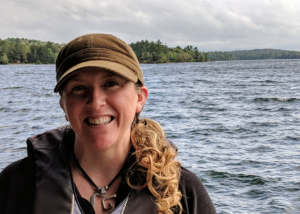 Dr. Danielle Wain is the Lake Science Director at the 7 Lakes Alliance, a regional NGO in the Belgrade Lakes watershed in central Maine, where she leads the water quality monitoring research program across the lakes. She has a BS in Civil Engineering (with an Environmental Engineering focus) from Cornell University and completed her PhD in Civil Engineering (with an emphasis in Environmental and Water Resources Engineering) at Iowa State University. Before moving to Maine, she was a Lecturer (Assistant Professor) in Water Quality Engineering at the University of Bath (UK). Her expertise is in process-based understanding of how lake and reservoir hydrodynamics impact ecology and biogeochemistry and how we leverage this knowledge to develop management strategies.
Dr. Danielle Wain is the Lake Science Director at the 7 Lakes Alliance, a regional NGO in the Belgrade Lakes watershed in central Maine, where she leads the water quality monitoring research program across the lakes. She has a BS in Civil Engineering (with an Environmental Engineering focus) from Cornell University and completed her PhD in Civil Engineering (with an emphasis in Environmental and Water Resources Engineering) at Iowa State University. Before moving to Maine, she was a Lecturer (Assistant Professor) in Water Quality Engineering at the University of Bath (UK). Her expertise is in process-based understanding of how lake and reservoir hydrodynamics impact ecology and biogeochemistry and how we leverage this knowledge to develop management strategies.
“Having recently moved back to the US, I am new to NALMS but enthusiastic to contribute meaningfully to an organization that bridges the gap between academic research and practical lake and reservoir management. I believe that my detail-oriented nature makes me a good candidate for the role of Secretary, and I am looking forward to bringing my expertise and skills to the Board, while having the opportunity to work alongside a team dedicated to the protection of our lakes and reservoirs.”
The Region 4 Director represents NALMS members in Alabama, Florida, Georgia, Kentucky, Mississippi, North Carolina, South Carolina, and Tennessee.
 Patrick Goodwin is a lead water quality expert for Vertex Aquatic Solutions research and development team. He also provides lake management consulting services through Vertex’s international dealer network. Patrick has a B.S. from the University of North Florida and a M.S. from the State University of New York, Oneonta, in Lake Management. Patrick is a CLM and is an active member of the Aquatic Plant Management Societies (APMS), NALMS, and its affiliate chapters. Patrick currently serves on the board of directors for the Florida Lake Management Society (FLMS).
Patrick Goodwin is a lead water quality expert for Vertex Aquatic Solutions research and development team. He also provides lake management consulting services through Vertex’s international dealer network. Patrick has a B.S. from the University of North Florida and a M.S. from the State University of New York, Oneonta, in Lake Management. Patrick is a CLM and is an active member of the Aquatic Plant Management Societies (APMS), NALMS, and its affiliate chapters. Patrick currently serves on the board of directors for the Florida Lake Management Society (FLMS).
“I am excited about the opportunity to help NALMS in any way I can! I feel my current involvement with other societies like APMS chapters and smaller pond management societies like Pond Boss will broaden the NALMS membership base. If elected, I will work hard to bring more exposure to NALMS in the hope of increasing its membership base. I also currently manage all of FLMS social media platforms and could help NALMS increase its exposure through such media platforms. Thank you!”
The Region 7 Director represents NALMS members in Iowa, Kansas, Missouri, and Nebraska.
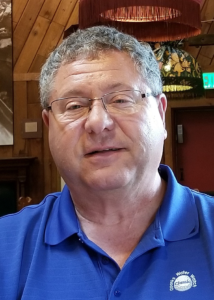 David Casaletto is the President of Ozarks Water Watch (OWW), a nonprofit water quality organization. OWW’s mission is to protect and improve the waters of the Upper White River Basin focusing on Beaver, Table Rock, Taneycomo and Bull Shoals lakes and their watersheds. David has focused on reducing nutrient pollution from failing septic systems and small private wastewater treatment facilities. David was Program Coordinator for the National Decentralized Onsite Wastewater Demonstration Project at Table Rock Lake, a $2 Million cooperative agreement with EPA to find technical and management solutions for failing septic systems at Table Rock Lake.
David Casaletto is the President of Ozarks Water Watch (OWW), a nonprofit water quality organization. OWW’s mission is to protect and improve the waters of the Upper White River Basin focusing on Beaver, Table Rock, Taneycomo and Bull Shoals lakes and their watersheds. David has focused on reducing nutrient pollution from failing septic systems and small private wastewater treatment facilities. David was Program Coordinator for the National Decentralized Onsite Wastewater Demonstration Project at Table Rock Lake, a $2 Million cooperative agreement with EPA to find technical and management solutions for failing septic systems at Table Rock Lake.
“I am excited about the possibility of serving NALMS as the Region 7 Director. I have spent the last 20 years focused on lake water quality in Southwest Missouri and have participated with NALMS on the Secchi Dip-In. I would like to help NALMS develop the partnership between citizens and water quality professionals. Only by getting the public out into and enjoying nature, can we expect them to appreciate and ultimately protect our environment. I feel NALMS Lake Appreciation Month has made a positive contribution to this effort.”
The Region 8 Director represents NALMS members in Colorado, Montana, North Dakota, South Dakota, Utah, and Wyoming.
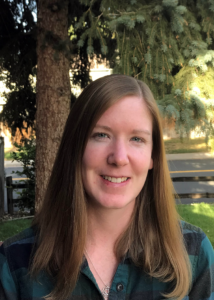 Trea Nance is a Water Quality Chemist for the City of Westminster, Colorado where she works on source water quality in Standley Lake. She has worked on several diverse lake and reservoir projects, such as quagga mussels in Lake Mead, Nevada, benthic macroinvertebrates in Lake Tahoe, California/Nevada, and cyanobacteria for her M.S. thesis in Fernan Lake, Idaho. Trea is a Certified Lake Professional and has been Treasurer of the Colorado Lake and Reservoir Management Association (CLRMA) for three years. Trea has been a NALMS member since 2014 and presented her M.S. research at the 2015 symposium where she was the recipient of the Jody Connor Student Award.
Trea Nance is a Water Quality Chemist for the City of Westminster, Colorado where she works on source water quality in Standley Lake. She has worked on several diverse lake and reservoir projects, such as quagga mussels in Lake Mead, Nevada, benthic macroinvertebrates in Lake Tahoe, California/Nevada, and cyanobacteria for her M.S. thesis in Fernan Lake, Idaho. Trea is a Certified Lake Professional and has been Treasurer of the Colorado Lake and Reservoir Management Association (CLRMA) for three years. Trea has been a NALMS member since 2014 and presented her M.S. research at the 2015 symposium where she was the recipient of the Jody Connor Student Award.
“As Region 8 director I hope to increase communication across different fields within the region. My academic background and experience in working for a utility and in consulting allows me to recognize the collaboration and education opportunities that arise when different perspectives come together. CLRMA and NALMS have created a strong platform for this collaboration in Colorado and I feel this can be expanded into the other five states within the region. Further, opportunities that arose for me through NALMS in graduate school played a key role in my career development. If elected, I would focus strongly on increasing student membership within Region 8.”
The Region 11 Director represents NALMS members in New Brunswick, Newfoundland and Labrador, Nova Scotia, Ontario, Prince Edward Island, and Quebec.
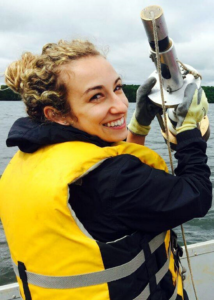 Liz Favot is a senior PhD candidate at Queen’s University in Kingston, Ontario. Using information stored in lake sediments, her research investigates the causes of cyanobacterial blooms, and aims to provide historically informed and ecologically relevant management targets. Liz is experienced at distilling research into actionable management issues for cottage, lake, and watershed associations. In her roles as NALMS Student Director, a mentor, educator, and coordinator for the Canadian Association for Girls in Science, Liz has demonstrated a passion for fostering collaborative aquatic science communities.
Liz Favot is a senior PhD candidate at Queen’s University in Kingston, Ontario. Using information stored in lake sediments, her research investigates the causes of cyanobacterial blooms, and aims to provide historically informed and ecologically relevant management targets. Liz is experienced at distilling research into actionable management issues for cottage, lake, and watershed associations. In her roles as NALMS Student Director, a mentor, educator, and coordinator for the Canadian Association for Girls in Science, Liz has demonstrated a passion for fostering collaborative aquatic science communities.
“I have attended NALMS symposia since beginning my graduate studies and am continually inspired by their innovative and cooperative atmosphere. In 2019–2020 I was elected as Student Director for the society. My responsibilities in this role were intensified by COVID-19, through which I have adapted student programs to maintain the strong sense of community amongst NALMS future lake management professionals in a virtual environment. As Region 11 Director, I will apply the skills I gained from this experience to build eastern Canada’s membership. It is my goal to unite the vibrant group of researchers in Region 11 to help assess, monitor, and mitigate the issues facing the region’s three quarters of a million lakes.”
 Brian Ginn is the limnologist with the Lake Simcoe Region Conservation Authority, heads their lake monitoring program, and is one of three Canadian NALMS Certified Lake Managers. Focusing on nearshore zone management, Brian’s work addresses the questions and concerns of local residents; supports the implementation of the Lake Simcoe Protection Plan; and investigates macrophytes, benthos, water quality, and the impacts of nutrients, climate change, and invasive species. Brian has a BSc and MSc from the University of New Brunswick and a PhD from Queen’s University. Originally from the Maritime Provinces, Brian is a lifelong resident of Region 11, has lived in four of the provinces, and is very familiar with the diversity of lakes, and lake issues, in this region.
Brian Ginn is the limnologist with the Lake Simcoe Region Conservation Authority, heads their lake monitoring program, and is one of three Canadian NALMS Certified Lake Managers. Focusing on nearshore zone management, Brian’s work addresses the questions and concerns of local residents; supports the implementation of the Lake Simcoe Protection Plan; and investigates macrophytes, benthos, water quality, and the impacts of nutrients, climate change, and invasive species. Brian has a BSc and MSc from the University of New Brunswick and a PhD from Queen’s University. Originally from the Maritime Provinces, Brian is a lifelong resident of Region 11, has lived in four of the provinces, and is very familiar with the diversity of lakes, and lake issues, in this region.
“I have received a lot of assistance through NALMS, including collaborations with members, and the certified professional program over the years, and I am looking for an opportunity to give back to NALMS. I would like to expand the scope of NALMS in eastern Canada by increasing membership, particularly among students, lake associations, and early career researchers; promote Lake Appreciation Month and the Secchi Dip-in to highlight lake issues in Eastern Canada, and represent the interests of Region 11 on the NALMS Board of Directors.”
The Student Director represents all student members of NALMS.
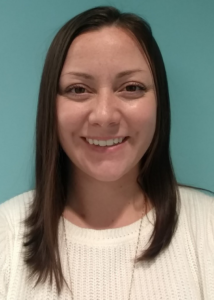 Lauren Adkins Knose is a fifth-year PhD student at Miami University in Oxford, Ohio. Her research is focused on identifying changes in environmental conditions that favor toxin producing phytoplankton, leading to harmful algal blooms (HAB) in freshwater lakes. Prior to Miami, she achieved a Master’s in Public Health and worked on developing and implementing health impact assessments for the U.S. EPA. As a graduate student, she led a survey of lakes, in collaboration with PLEON, to characterize the extent of HABs in Northeast Pennsylvania and test various detection techniques to help design HAB monitoring and response strategies for lake managers. She also leads an annual workshop about HABs for community stakeholders. Her goal is to help inform decision-making through better understanding ecological challenges facing lakes and the potential public health consequences.
Lauren Adkins Knose is a fifth-year PhD student at Miami University in Oxford, Ohio. Her research is focused on identifying changes in environmental conditions that favor toxin producing phytoplankton, leading to harmful algal blooms (HAB) in freshwater lakes. Prior to Miami, she achieved a Master’s in Public Health and worked on developing and implementing health impact assessments for the U.S. EPA. As a graduate student, she led a survey of lakes, in collaboration with PLEON, to characterize the extent of HABs in Northeast Pennsylvania and test various detection techniques to help design HAB monitoring and response strategies for lake managers. She also leads an annual workshop about HABs for community stakeholders. Her goal is to help inform decision-making through better understanding ecological challenges facing lakes and the potential public health consequences.
“As the Student Director, I will listen to the needs of students and diligently work to find support and opportunities for recognizing their dedication and passion for studying lake ecosystems. I believe that students play a fundamental role in the ability to identify, communicate, and address the challenges facing lakes and deserve a voice in the decision-making process. My goal is to provide a vehicle for their voices to be heard, encourage them to participate, and help empower them as the next leaders in lake management.”
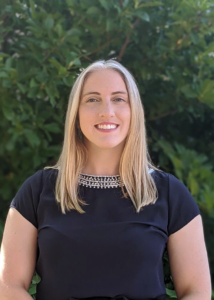 Alex Di Lonardo completed her BSc in Biology and Sustainability at Dalhousie University. After graduation, she worked as a Water Quality Specialist at the Oklahoma Aquarium, eventually becoming the department head. She is currently an MSc student at Mount Allison University researching long-term environmental change and its accompanying ecological impacts in lakes using natural environmental archives contained in lake sediments. In 2019, she helped organize a student-run Paleolimnology conference and is currently the graduate student representative for Mount Allison’s Student Administrative Council. She participated in NALMS 2019 in Vermont before becoming a member in 2020 and is looking forward to presenting the preliminary results of her research in November.
Alex Di Lonardo completed her BSc in Biology and Sustainability at Dalhousie University. After graduation, she worked as a Water Quality Specialist at the Oklahoma Aquarium, eventually becoming the department head. She is currently an MSc student at Mount Allison University researching long-term environmental change and its accompanying ecological impacts in lakes using natural environmental archives contained in lake sediments. In 2019, she helped organize a student-run Paleolimnology conference and is currently the graduate student representative for Mount Allison’s Student Administrative Council. She participated in NALMS 2019 in Vermont before becoming a member in 2020 and is looking forward to presenting the preliminary results of her research in November.
“I am honored to be nominated for the Student Director position on the NALMS Board of Directors. From my experience at the 2019 conference, it is obvious that NALMS supports students with the grants and networking opportunities at conferences as well as mentorships with local members. I hope to continue these incredible initiatives as Student Director as well as further enhance student inclusion and sense of community. In this position, I can accomplish these goals by building on my experience organizing a conference and representing student interests at academic organizations.”
